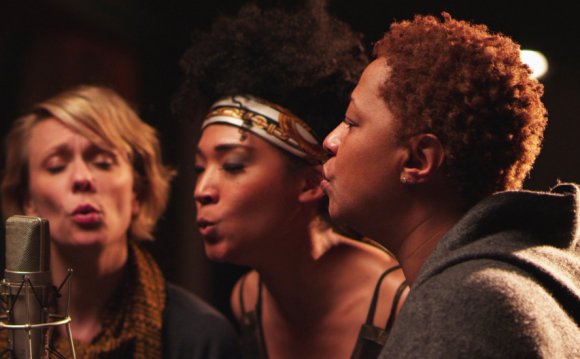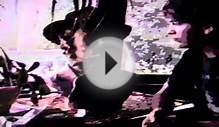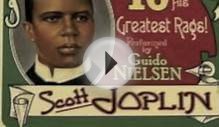
Pianist Oscar Peterson was the biggest name to emerge from the golden age of jazz in Montreal. Bettmann/CORBIS hide caption
toggle caption Bettmann/CORBIS
Pianist Oscar Peterson was the biggest name to emerge from the golden age of jazz in Montreal.
Bettmann/CORBIS
Jazz fans may know the Canadian city of Montreal for the Montreal International Jazz Festival, one of the world's largest. Or maybe they heard that Oscar Peterson, the virtuoso pianist, grew up there. But there's a fascinating history behind the city's jazz community which predates either of those two — one that intersects railways, prohibition and the black neighborhood of Little Burgundy.
Last year, the Canadian Broadcasting Company/Radio-Canada recently commissioned a documentary about Montreal jazz history called Burgundy Jazz: Life and Music in Little Burgundy. Only it's not just on TV, but formatted as a free web series — 14 video episodes of three to five minutes, plus bonus audio, video, music recommendations, photos, a timeline and even an iPhone app for touring the neighborhood itself. It's fantastically done, digestible in little chunks or all at once, often with a sparkling Oscar Peterson soundtrack. And it tells a neat story about how unique historical incidents made for a jazz scene that lured North America's best and brightest, whether to visit, to stay, or to emerge from its own ranks.
- Oscar Peterson happened because of trains. In fact, Montreal's black community is historically based in Little Burgundy because the city's two major train stations were built in the Little Burgundy neighborhood in the late 1800s — and railway porter was one of the only jobs available to black men at the time. Oscar Peterson's father, a Caribbean immigrant (and amateur musician), was one of those porters. That certainly sheds new light on Peterson's famous version of "Night Train." [From "Episode 1: Trains & Porters"]
- Montreal's jazz scene owes a lot to alcohol. More exactly, Montreal's nightlife scene boomed during the prohibition of alcohol, enacted throughout the U.S. and nearly all of Canada in 1919. Since the province of Quebec remained "wet, " Montreal became the only major North American city where drinking was legal for more than a decade, and the city became known as a party town. That brought a lot of traffic in, making opportunities for musicians. In fact, bootlegging provided local proprietor Rufus Rockhead a nest egg to start his own nightclub, Rockhead's Paradise. As one of the first black-owned venues, it consistently hosted some of North America's biggest talents in black entertainment. [From "Episode 2: Prohibition" and "Episode 9: Rockhead's Paradise"]
- The music literally came out of the black community. Little Burgundy had its share of nightclubs where major North American talent was showcased, and where local musicians got chances to hone their skills nightly. But black community organizations, often closely linked to black churches, were crucial spaces for black children to learn music. The Negro Community Center of Montreal, with a major focus on children's programming, was located in the basement of a church — and was an institution that musicians like Oliver Jones and Oscar Peterson went through as kids. Another institution for both musicians: Daisy Peterson Sweeney, Oscar's older sister and a piano teacher to many neighborhood kids. [From "Episode 4: Church & Community"]
- Radio made Oscar Peterson famous. A prodigy from a young age, Peterson had 15 minutes on air every Thursday at one point in his early career. Never mind jazz: There aren't many living musicians at all who get that kind of media opportunity today. Years later, jazz impresario Norman Granz (of Jazz at the Philharmonic and Verve Records) was heading to the airport when he heard Peterson's trio on the radio of a taxi cab. He was so impressed that he had the driver swing by the club where the transmission was emanating live. Soon, Peterson became a staple on Granz's concert tours and record label. [From "Episode 10: Oscar Peterson"]
- One guy carried Montreal jazz during its darkest days. The economy for jazz tanked continent-wide in the late 1960s and 1970s, and Montreal wasn't immune to clubs closing and musicians leaving. It didn't help that a freeway development destroyed a significant part of Little Burgundy, either. But an American expat bassist named Charlie Biddle stayed, eventually opening a club and launching a jazz festival that laid a framework for the first Montreal Jazz Festival. He also got pianist Oliver Jones to return to Canada, which led to the launch of Justin Time Records — now a major chronicler of Canadian jazz. [From "Episode 13: Revival"]
RELATED VIDEO











